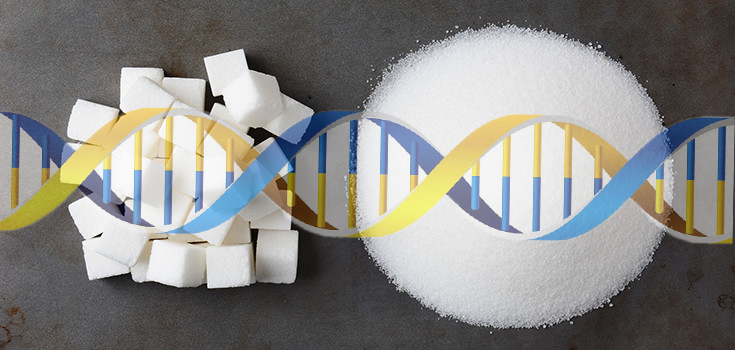Will Sugar Soon be Genetically Modified to ‘Help Fight Skin Cancer?’

L-fucose, a rare sugar found in seaweed, mushrooms, seeds, and other foods, may help treat skin cancer, experts have revealed.
The sugar was linked to certain cancers and inflammation in previous studies, but a new study suggests that by tinkering with L-fucose metabolism, the substance could stave off the spread of melanoma, the most dangerous form of skin cancer.
“Not only were the tumors affected but also their micro-environment – the cells surrounding the tumor that play a critical role in sustaining the cancer – making the discovery even more impactful,” said Dr. Ze’ev Ronai, senior author of the study.
Glucose and sucrose, both sugars, come from a variety of different sources and are used in the body in different ways. Sugars like L-sucose provide crucial tags on cell-surface proteins that signal inflammation and help direct cell migration. In earlier studies, changes in the amount of L-sucose on cells were associated with breast and stomach cancers.
For the recent study, researchers focused on cultivating transcription factor 2 (ATF2) – a protein which controls the expression of many other proteins. ATF2 has been linked to the development of melanoma and other cancers in the past.
“To our surprise, one of the genes found to be regulated by ATF2 was fucokinase (FUK), which controls the ability of cells to process the dietary sugar, L-fucose, into a form that is useable for the modification (fucosylation) of proteins, many of which are on the cell surface,” said Ronai.
“In human samples, we found reduced fucosylation in metastatic melanomas and a better prognosis for primary melanomas with increased fucosylation. We suspect that the absence of L-fucose on melanoma cells makes them less sticky and more mobile in the body, making them more likely to metastasize,” Ronai explained.
The researchers were able to increase fucosylation in lab mice by adding L-sucose to the rodents’ drinking water or by altering their genes. The growth and metastases of tumors slowed in both experiments.
“Importantly, in mice with melanoma, the researchers were able to increase fucosylation either by adding the sugar to their drinking water or by genetic manipulation. Both methods inhibited the growth and metastasis of the tumors.”
Dr. Eric Lau, lead author of the study, said: ‘Many patients develop resistance to current melanoma drugs.’
“If we can add something like L-fucose to enhance these therapies, that’s very exciting, and that’s what we’re actively looking into,” he said.
The doctor added that the team’s findings were “especially gratifying” because they mean it could be possible to modify fucosylation simply by adding L-fucos to drinking water.
The Mayo Clinic says that sugar does not make cancer cells grow faster, though consuming large amounts of sugar has been associated with an increased risk of certain cancers, including esophageal cancer. Sugar is also linked to obesity and diabetes, which may increase the risk of cancer. So many will say to completely avoid sugar in order to further starve cancer to death.
A study by researchers at UCLA found that pancreatic cancer cells multiplied and grew more rapidly when fueled by fructose, which is fruit sugar, as opposed to glucose or sucrose. Eating fruit isn’t the problem, though. Fructose is also found in more food products than you could count including processed foods and soft drinks, and is often found in products in the form of high fructose corn syrup.
There’s also a ton of fructose in fruit juices, which is one of the reasons why doctors and experts recommend eating a piece of fruit instead of drinking fruit juice.
Sources:
[1] Daily Mail
[2] ScienceDaily
